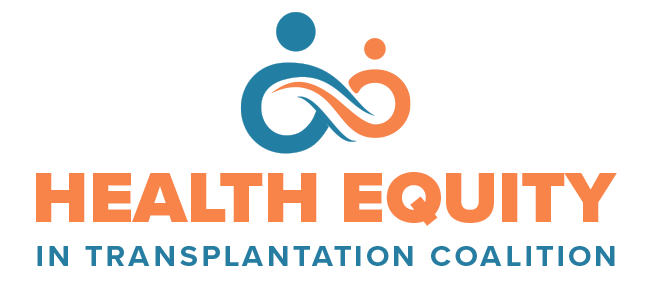Rev. Al Sharpton, Singer Al B. Sure! demand organ transplant equity for Black and brown communities
Originally published in New York Amsterdam News.
Changes to Medicare coverage this year have led to sizable cutbacks for transplant patients, especially in impacted Black and brown communities. Rev. Al Sharpton, founder of National Action Network (NAN), and singer Al B. Sure! are building a coalition to oppose the cuts.
According to the Health Resources & Services Administration (HRSA), there are over 100,000 people on the national transplant waiting list. The organ shortage disproportionately affects Black and Latino Americans. Though shared ethnicity isn’t a requirement for an organ match, said the HRSA, a “more diverse donor registry gives ethnic minorities on the transplant waiting list a better chance to find a good donor match.”
For the last six years, blood tests that detected organ rejection were covered under Medicare and preferable to a surgical biopsy because they are non-invasive, can be done from home, and are less time-consuming. This March, the U.S. Department of Health and Human Services announced they’d cut back on coverage of the tests, even though the policy states that tests can be routinely performed.
Now Sure! and Sharpton have established the Health Equity in Transplantation Coalition (HETC). Together they want to reverse the Medicare restrictions placed on patient blood tests that detect early signs of organ rejection.
“Black, Hispanic, Latino and underserved communities were given a lifeline with these non-invasive tests,” said Sharpton in a statement. “That was taken away in March 2023, when a private company decided Medicare would no longer cover this life-saving measure for transplant recipients, who overwhelmingly come from these communities. It’s time we reverse this decision and allow transplant recipients to have access to more and better tools—not less.”
Sure! has become a major healthcare advocate since his recovery from a lifesaving liver transplant procedure last year. After two months in a coma, Sure! explained in an emotional open letter that his medical emergency had “been a complete life-changing experience.”
“All mind-boggling at the least. It just doesn’t jell,” he wrote. “I am now the proud owner of a chevron-shaped scar where the doctor entered my chest and abdominal cavity to repair my broken parts. That’s the best description I can give without going into the unsavory, morbid-sounding details. [From] being heavily sedated, asleep, and in a coma during a portion of my hospitalization, to learning that the amazing medical staff were fully prepared to send me to hospice due to the severity of my condition was unbelievable. Doctors said it just didn’t look as if I’d make it through with everything going on simultaneously. My brother DJ Eddie F, my primary physician Dr. K, Civil Rights icon Rev. Al Sharpton, and Rachel Noerdlinger were firm advocates.”
He had multiple surgeries to repair a hematoma/hernia and dealt with an organ transplant, fungal pneumonia, sepsis, infected lymph nodes, a tracheostomy, placed on a ventilator for 38 days, and had over 50 blood transfusions. He said he came out of the experience with an unwavering faith in God. He wants to use his “new lease on life” to be an ambassador for the transplant community and continue fighting for equity.
“These blood tests are especially important to transplant patients in the Black, Hispanic, Latino, and underserved transplant communities,” said Sure! in a statement. “It makes no sense to take away Medicare coverage for these underserved transplant recipients who can take these blood tests at home. Rather than tying Medicare to an invasive biopsy that might require expensive travel, time off work for their patient and caregiver, and surgery in a hospital.”
Other transplant patients and medical organizations, like the American Society for Transplant Surgeons, the American Society of Transplantation, the International Society for Heart and Lung Transplantation, the American Association of Kidney Patients, and the 13-member organizations of the Honor the Gift coalition agree that the blood tests should be covered.
From December 4-6, hundreds of transplant recipients will convene in Washington, D.C. to put more pressure on congressional leaders to reverse the Medicare cutbacks.
